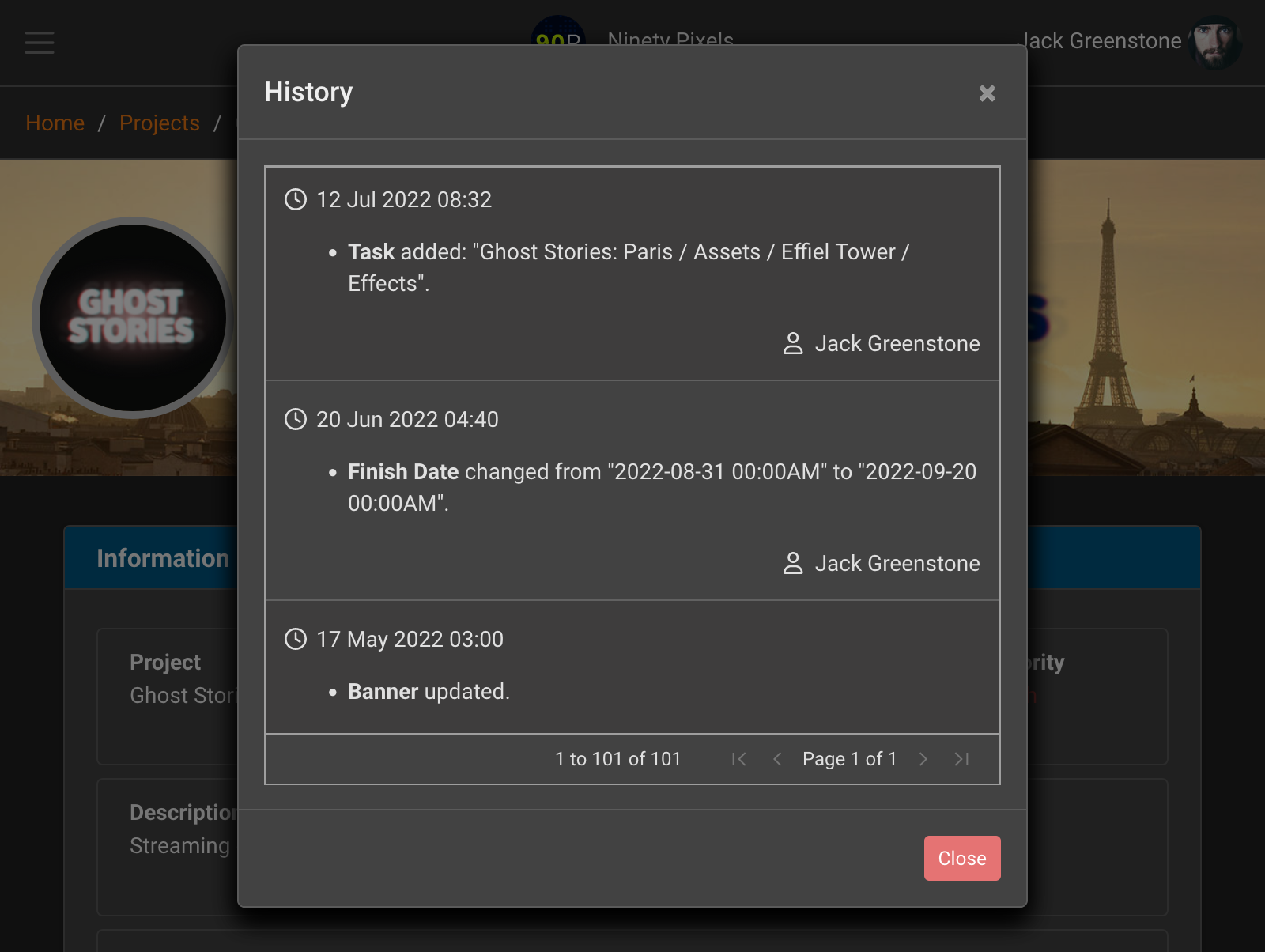
Continuous improvement with post mortems
There are gold nuggets in your completed projects that can help you improve how you manage future work and your team.
Some findings may be positive, such as accurate bidding, on-budget outcomes and on-time outcomes.
Or, some findings may be weaknesses such as under estimating tasks, under-resourced tasks and poor ETC values.
All identified findings should be used to improve your business. Projectal helps you to identify these points and lets you capture these improvements as heuristics for future projects.
Projectal becomes your 'Source of Truth'
If you wish to conduct a post mortem after a project has completed, then you need a singular set of data to work from.
Projectal records all changes in a project from bidding to completion, including planning, scheduling, and change orders. You have a complete audit trail of what changes were made, who made them, and when they were made. You can go back in time to any stage in your project to review what happened at that point.
This provides a source of truth for all staff members to conduct a balanced post mortem.

Improve with
heuristics
Heuristics are snippets of knowledge that you know are true and work in your business. Heuristics can be saved as task templates in Projectal and quickly inserted into future projects.
When a project is finished, your team may identify task sequences that can be reused. Simply save these task sets as task templates. These trusted components can be used during bidding to provide more accurate time and costs, as well as during planning to provide more accurate schedules and staff assignments.

Adjust Estimated Time
To Complete (ETC) values
During a project, you will ask your staff for the ETC to complete a task.
Estimating times is a personality affected activity. Some staff will overestimate the time to complete a task and others will underestimate.
Reviewing tasks in Projectal will show you staff that are consistently overestimating or underestimating. This knowledge can be used in future projects to make for more accurate bids, plans and schedules.
